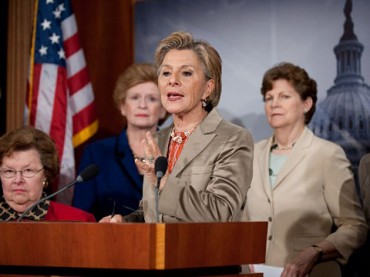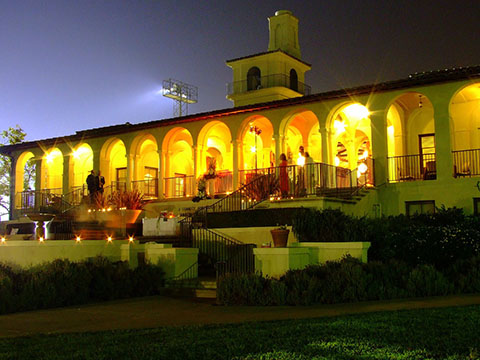
With two congressional bills introduced Wednesday regarding procedures for colleges handling sexual-assault allegations, reactions from advocates for the accused have varied from warily supportive to heavily critical.
The Campus Accountability and Safety Act, introduced by a bipartisan Senate coalition, was quickly followed by the Survivor Outreach and Support (SOS) Campus Act, sponsored by two California Democrats, Barbara Boxer in the Senate and Susan Davis in the House.
“There are certainly aspects of both of these bills that deserve praise, but there are also aspects that raise concern,” the Foundation for Individual Rights in Education, one of the most visible groups urging colleges to provide due process to accused students, said in a Thursday statement.
There are 72 institutions of higher education under investigation as of July 30 for reported violations of handling sexual-violence allegations under Title IX, according to a list provided by Department of Education spokesman Jim Bradshaw to The College Fix.
The main focus of the SOS Campus Act seemingly overlaps with a key component from the earlier bill, in that they both call for an independent campus advocate for victims on every campus.
“Victims of a sexual assault need to know someone is there for them, especially the learning institute they have entrusted their future to,” said Davis in a press release.
Every university that gets federal funding – notable holdouts include Hillsdale College in Michigan and Grove City College in Pennsylvania – would have to “designate an advocate for campus sexual assault prevention and response,” according to a summary of the bill provided by Boxer’s office.
“The advocate is independent of the university and must report to someone outside the university’s sexual assault adjudication chain of command,” the summary said.
The SOS sponsors cite a statistic on sexual assault, based on a 2007 Justice Department Web-based survey of undergraduate women at two large public universities, that has come under close scrutiny.
“Nearly one-in-five female students has been sexually assaulted while in college, while male students face a greater than one-in-twenty chance of the same victimization,” according to the summary.
The bill followed “months of discussions with California university officials,” Boxer said in a press release.
Advocates Only for Victims, Not Accused Students
The issue of due process for alleged assailants, which has bubbled up through litigation by accused students against the colleges that punished them, was notable mostly for its absence from the bills introduced Wednesday.
According to A Voice for Male Students, an advocacy group for educational equality, there are currently 33 cases of “young men wrongly accused of sex crimes,” being “hustled through a vague and misshapen adjudication process with slipshod checks and balances and Kafkaesque standards of evidence.”
 The Foundation for Individual Rights in Education (FIRE) took on one of those cases involving a male student at Occidental College.
The Foundation for Individual Rights in Education (FIRE) took on one of those cases involving a male student at Occidental College.
FIRE noted in its Thursday statement that one of the disputed elements of the Boxer/Davis bill is that the advocate must “[a]ttend, at the request of the victim of sexual assault, any administrative or institution-based adjudication proceeding related to such assault as an advocate for the victim.”
This stipulation is an issue of equal rights to due process for both victim and alleged assailant, FIRE said.
“FIRE has long urged lawmakers to ensure that both student complainants and the accused enjoy the right to the advocacy of an attorney during campus adjudication proceedings,” it said. “This bill does not do that.”
The group provided qualified praise for the Campus Accountability and Safety Act in a Wednesday statement, approving of its provisions on student athletes’ treatment and formal relationships between schools and local law enforcement.
Washington Examiner opinion columnist Ashe Schow was much less measured, writing Thursday that the earlier bill “may not do anything to actually combat sexual assaults and will most likely lead to more lawsuits over claims of due process violations and more men being convicted for politically correct purposes.”
Schow sought answers to her doubts over the bill in an interview with a spokesman for sponsor Sen. Marco Rubio, Republican of Florida, which she posted later on Thursday.
Spokesman Alex Conant told Schow that though “wrongful convictions” ruin lives, “Better training of university staff and the closer partnerships with local law enforcement … should improve how these cases are investigated and prosecuted.”
Conant got in a dig at the Obama administration in one response to Schow, saying that “serious crimes are best pursued by well-trained police forces, not by university personnel operating under confusing and ever conflicting guidance issued by the Department of Education.”
College Fix contributor Julianne Stanford is a student at the University of Arizona.
Like The College Fix on Facebook / Follow us on Twitter
IMAGES: Senator Boxer/Flickr, Anthony J/Flickr





Please join the conversation about our stories on Facebook, Twitter, Instagram, Reddit, MeWe, Rumble, Gab, Minds and Gettr.